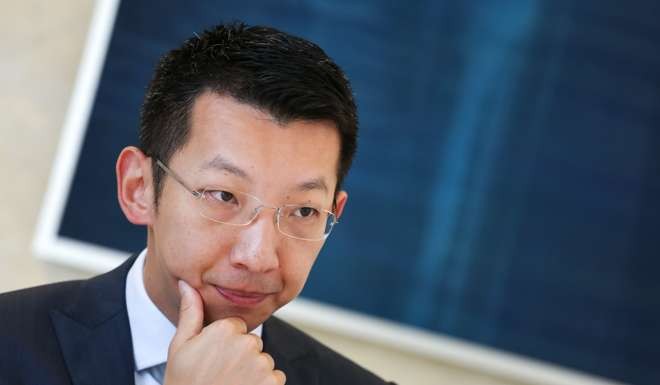
One way traffic: Chinese investors pour HK$9.86 billion into Hong Kong funds while locals reject mainland investments
Mainland investors channel 8.45 billion yuan into Hong Kong funds under new cross-border fund programme. JPMorgan’s funds dominate trade, attracting 90pc of mainland investment flows

Hong Kong domiciled funds have turned out to be wildly popular with mainland investors, who snatched up 80 times more of the investments than Hong Kong investors purchased of a reciprocal product that provides access to mainland equity markets, data for the first eight months of a new cross-border programme showed.
Mainlanders channelled 8.45 billion yuan (HK$9.86 billion) to buy Hong Kong fund products on offer in the mainland over the January to August period, according to figures released by China’s State Administration of Foreign Exchange (SAFE).
The sum is 80 times the 104.59 million yuan that Hongkongers channelled into mainland funds products sold in the city.

This is despite the rich offering of mainland investment products on offer in Hong Kong, as 42 mainland funds have been approved for distribution by the Securities and Futures Commission. Meanwhile, only six Hong Kong investment funds have been approved for distribution in China by the China Securities Regulatory Commission.
The cross border fund sales are part of the mutual recognition scheme which started in January.
JPMorgan Asset Management has won the lion’s share of the fund sales to mainland investors, receiving 7.6 billion yuan of investments through the marketing of two funds, one focused on Asian equities and the other on Asian bonds.
“Hong Kong funds are popular among mainlanders as they want to invest in international products to diversify their risk,” JPMorgan’s head of China retail business Henry Tong said.
He credited an effective distribution network as key to the success of the products.
JPMorgan’s mainland joint venture distributes the funds through 12 mainland banks, online platforms, in addition to individual brokers. Beijing, Shanghahi, Guangzhou and second tier cities such as Chengdu are covered as part of the marketing umbrella.
“Basically, we found mainlanders want to invest in fund products with a balance risk level and they want the funds invested in a number of markets to diversify risk,” Tong said.
Tong said an application has been filed to gain distribution approval for a third fund offering Asian high yield equity.

Although the stock connect between Hong Kong and Shanghai launched in 2014 could allow investors cross border access, Tong said it would not compete with the cross border fund scheme.
Meanwhile, Hang Seng Bank said its cross-border sales of an index fund that tracks the Hong Kong China Enterprises Index has been well received.
“We are happy with the sales,” Hang Seng Bank executive director Andrew Fung said without providing a sales figure. “The north bounds offer more diversification as it has bond funds, actively managed equity funds and index funds.”
“The southbound funds are not too different from existing R-QFII and A-share ETFs. Falling bond yields and weak A-share performance also account for the slow sales of mainland products. The trend may persists for some time until A-shares do better,” Fung said.
JPMorgan’s mainland joint venture has three mainland funds sold in Hong Kong.
Elisa Ng Ka-li, head of intermediary business of JPMorgan Asset Management, said most of the southbound funds are invested in domestic mainland equities which is different from the northbound funds which offer diversification across different asset classes and geographical regions.
“Given that China’s domestic equities tend to be more volatile and momentum driven, Hong Kong investors are in general sceptical towards A-shares, especially when the market for the past few months has been range bound,” Ng said.
“We believe once the A-share markets regain momentum and the sentiment towards domestic A-shares improves, sales of mainland funds will gain more traction,” Ng said.
Stewart Aldcroft, chairman of Cititrust, said the sales show the appeal of the funds offered by Hong Kong fund managers is far greater than those offered by mainland managers.
“It is widely believed that the CSRC is slowing the processing of funds from Hong Kong for approval in China, as they fear the volumes would be even greater, possibly exceeding their expectations for the initial stages of mutual fund recognition,” Aldcroft said.
“The local fund management industry would like the SFC to be far more vocal to the CSRC in moving forward on approving funds, thus to provide some help to have a wider choice of funds sold in the market,” he said.
Hong Kong Investment Funds Association chief executive Sally Wong said mainland investors have limited choices when it comes to investing in overseas markets, so it’s natural for them to snap up Hong Kong funds.
“Currently, mainlanders can only either put their money in savings deposits, or at the other end, A-shares or property,” Wong said.